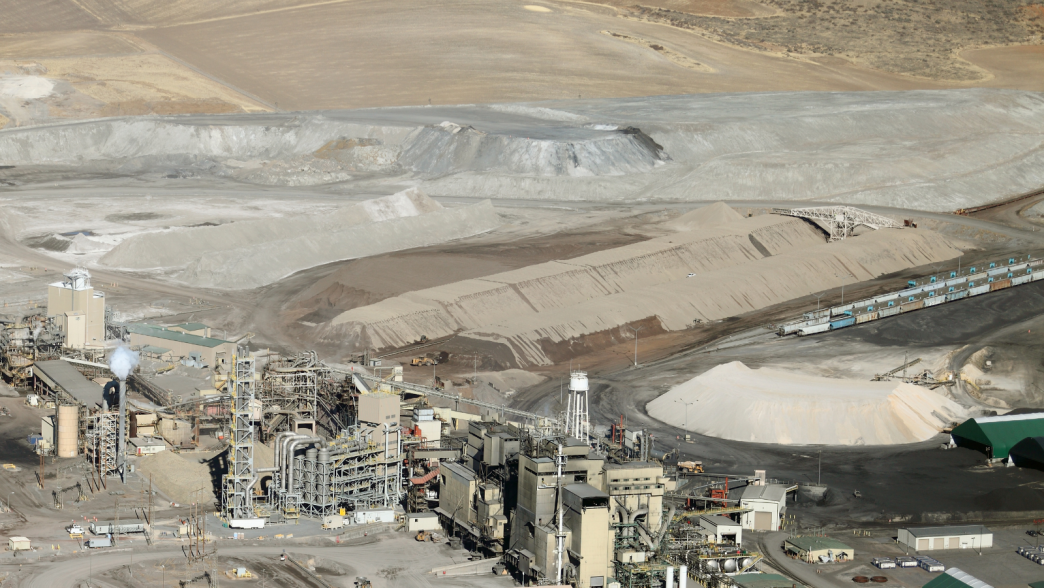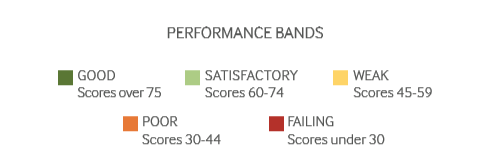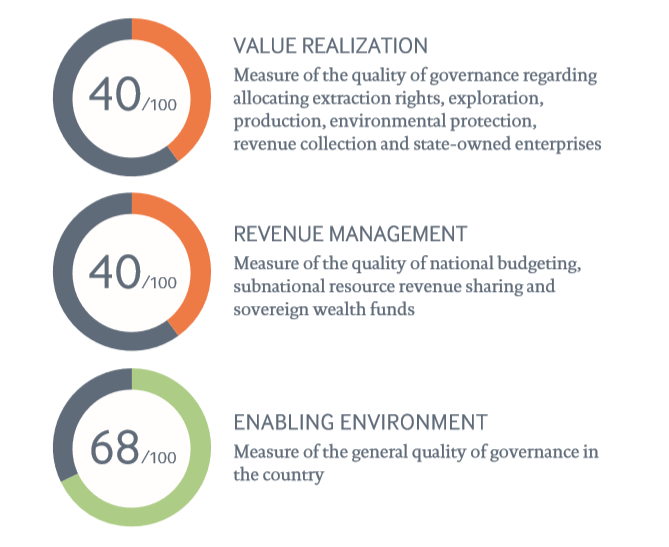
2021 Resource Governance Index: Morocco (Mining)
Français »
NRGI recommends the following course of action to improve mining governance in Morocco:
Morocco’s mining sector has scored 49 points in the 2021 Resource Governance Index (RGI), placing it in the “weak” performance band. While Morocco’s “satisfactory” enabling environment provides a somewhat firm foundation for overall governance, both value realization and revenue management, the two components focused specifically on extractive sector governance, received overall “poor” scores.
Key messages:
- Governance of licensing is “failing” (scoring just 14 points out of 100) due to the absence of a cadaster, lack of financial interest rules and disclosures, and opacity around mining sector contracts.
- A lack of disclosures of social and environmental impact assessments related to mining operations demonstrate deterioration in the governance of local impacts.
- The score for the governance of Morocco’s state-owned phosphate mining company, OCP Group, deteriorated by 15 points since the 2017 RGI, due to “failing” commodity sales rules and disclosures.
- As the country aims to become a producer of critical minerals and shifts focus to the energy transition, authorities should prioritize improving resource governance in order for the country as a whole to benefit from these plans.
NRGI recommends the following course of action to improve mining governance in Morocco:
- The government should legally mandate public financial interest and beneficial ownership disclosures and should publish all contracts and payments from extractive companies.
- The Ministry of Energy, Mines and Environment should ensure compliance with existing regulations on the disclosure of environmental and social impact assessments, and work with civil society actors to ensure a full picture of the costs of mining on populations and ecosystems.
- OCP Group should begin disaggregating commodity sales information to the level of individual sales, disclosing the values, dates and buyers of its phosphates.
- The government should significantly strengthen the framework governing the extractive sector, to translate natural resources into sustainable inclusive development. This is essential if Morocco is to benefit from the rising demand for critical minerals and reap the benefits of the energy transition.
- The government and civil society actors should work in concert to establish and maintain an inclusive dialogue around the benefits and risks of the energy transition, with improved government transparency and accountability toward civil society organizations and citizens in general.



